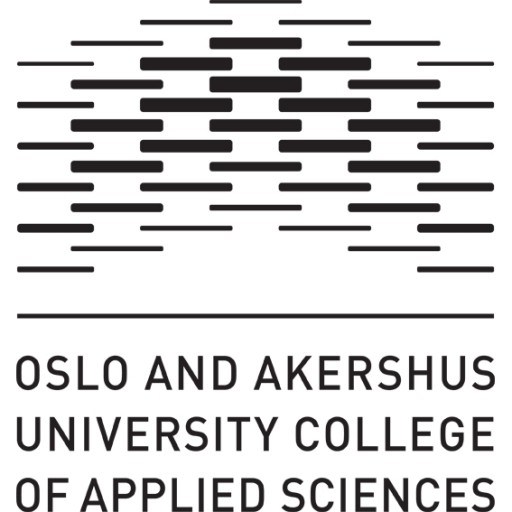Photos of university / #ntnu
Security and Mobile Computing (Erasmus) is an innovative master's degree program offered jointly by the Norwegian University of Science and Technology (NTNU) and partner institutions across Europe. This program is designed to equip students with cutting-edge knowledge and practical skills in the fields of cybersecurity, mobile communication, and wireless networking, preparing them for the rapidly evolving digital landscape. Throughout the coursework, students will explore core topics such as cryptography, secure communication protocols, network security, mobile application security, and the architecture of mobile networks. Emphasizing a hands-on approach, the program includes numerous laboratory exercises, projects, and real-world case studies that enable students to develop practical solutions to security challenges in mobile environments.
Students will gain a deep understanding of the vulnerabilities inherent in wireless and mobile systems and learn effective strategies to protect sensitive information. The program also covers the principles of designing secure systems, risk management, and compliance with privacy regulations, which are vital in today's interconnected world. An important feature of the program is its international orientation, facilitated by student exchanges within the Erasmus framework, allowing participants to immerse themselves in diverse academic and cultural settings. This fosters a global perspective on security issues and promotes collaborative problem-solving skills.
Graduates of the Security and Mobile Computing (Erasmus) program will be well-prepared for careers in cybersecurity, mobile app development, network engineering, and digital forensics, working in sectors such as telecommunications, government agencies, financial institutions, and private enterprises. The program’s interdisciplinary approach ensures that students not only acquire technical expertise but also develop critical thinking, analytical skills, and adaptability necessary for leadership roles in the tech industry. With a strong emphasis on research and innovation, students also have opportunities to participate in ongoing projects and contribute to advancements in mobile security technologies. Overall, this program offers a comprehensive, internationally oriented education designed to meet the needs of a secure digital future.
The Security and Mobile Computing (Erasmus) programme at the Norwegian University of Science and Technology offers a comprehensive curriculum designed to prepare students for the rapidly evolving fields of cybersecurity and wireless communication. Throughout this programme, students will gain a deep understanding of fundamental security principles, cryptographic techniques, network security, and mobile platform security. The coursework emphasizes practical skills through projects, laboratory exercises, and collaborative work, ensuring graduates are well-equipped to handle real-world challenges in securing mobile and networked systems.
The programme begins with a solid foundation in computer science and networking, providing students with essential knowledge of operating systems, programming, and network infrastructure. Building upon this base, courses delve into security topics such as data encryption, authentication protocols, intrusion detection, and secure software development. Special attention is given to mobile computing technologies, including mobile app security, wireless communication protocols, and the unique vulnerabilities associated with mobile devices.
Students will also explore emerging topics such as the Internet of Things (IoT), cloud security, and privacy concerns related to mobile and wireless technologies. The curriculum integrates theoretical knowledge with practical application through case studies, security assessments, and the development of secure mobile applications. The programme encourages interdisciplinary learning and international collaboration, reflecting the global nature of cybersecurity challenges.
In addition to coursework, students have opportunities to participate in research projects, internships, and exchange programmes across European partner universities. The programme aims to develop critical thinking, problem-solving skills, and an innovative mindset, preparing graduates for careers in academia, industry, and government agencies focused on security and mobile computing. Upon completion, graduates will be adept at designing, implementing, and managing secure mobile and wireless systems, contributing to safer digital environments worldwide.
The Security and Mobile Computing (Erasmus) program at the Norwegian University of Science and Technology offers students various financing options to support their studies. Tuition fees for international students vary depending on their nationality and academic background, with specific tuition rates established for Erasmus exchange students. Typically, Erasmus students pay reduced tuition fees compared to regular international students, enabling more accessible education opportunities. Besides tuition fees, students should consider additional costs such as registration fees, student union membership, textbooks, and living expenses, which can significantly impact overall financial planning.
Norwegian students benefit from publicly funded education, which generally means there are no tuition fees for Norwegian and EU/EEA students, including Erasmus participants. International students from outside the EU/EEA are usually required to pay tuition fees, which are announced annually and can range from a few thousand to over ten thousand euros per academic year. The university provides detailed information about tuition rates on its official website, and prospective students are encouraged to review these estimates carefully.
Financial aid options for students include scholarships, grants, and loans. The Norwegian government offers student loans and stipends through the Norwegian State Educational Loan Fund (Lånekassen), which students from Norway and certain other countries may apply for to support their living costs during their studies. Erasmus students can sometimes access additional scholarships targeted at mobility students, and the university may also have specific scholarships or financial aid programs for international students, including those enrolled in the Security and Mobile Computing program.
Students are advised to explore funding opportunities early in their application process and consult the university's international office for assistance. Many students finance their studies through a combination of personal savings, family support, scholarships, and part-time work opportunities available in Norway. The university’s location in Trondheim offers opportunities for practical training and employment, which can help offset living expenses.
Overall, studying at NTNU in this program can be financially manageable for many students, especially those from the EU/EEA region, due to the low or nonexistent tuition fees for these students. International students from outside Europe should carefully plan their budgets for tuition and living costs and seek available financial support options. In addition, the university emphasizes providing a supportive environment for international students, including guidance on financial planning and assistance in accessing resources.
The Security and Mobile Computing (Erasmus) program at the Norwegian University of Science and Technology (NTNU) offers students a unique opportunity to specialize in the rapidly evolving fields of cybersecurity, mobile communication, and wireless networks. This program is designed to equip students with a comprehensive understanding of the principles underlying secure communication systems, mobile network architectures, and the technologies that enable reliable and safe data transmission in a mobile environment. Students will study various aspects of cryptography, network security protocols, mobile device management, and emerging technologies such as 5G and the Internet of Things (IoT).
Throughout the program, students engage in both theoretical and practical coursework, allowing them to develop critical analytical skills and hands-on experience necessary to address current security challenges in mobile and wireless systems. The curriculum includes courses on secure programming, network penetration testing, mobile app security, and the design of resilient distributed systems. In addition, students participate in projects and internships that foster collaboration with industry partners, providing real-world experience and networking opportunities.
The program emphasizes innovation and research, encouraging students to explore novel security solutions and contribute to advancements in mobile computing. With access to state-of-the-art laboratories and research centers, students can work on cutting-edge projects in areas such as biometric authentication, secure IoT devices, and blockchain technology for secure transactions. The program also promotes international cooperation, enabling students to study alongside peers from different countries, broaden their cultural perspectives, and prepare for careers in global cybersecurity settings.
Graduates of the Security and Mobile Computing (Erasmus) program are well-equipped for careers in cybersecurity firms, telecommunications companies, government agencies, and technology startups. They also have the foundation to pursue further research or doctoral studies. The program not only develops technical expertise but also fosters critical thinking, problem-solving, and leadership skills essential for advancing in the fast-changing landscape of mobile security. Students who complete the Erasmus program benefit from mobility periods at partner universities across Europe, enhancing their intercultural competence and international professional networks.
This program is ideal for students interested in the intersection of mobile technology and security, those who wish to contribute to making mobile systems safer, and professionals seeking to deepen their knowledge of emerging security technologies in wireless and mobile environments. Admission requirements typically include a background in computer science, electrical engineering, or related disciplines, and proficiency in English. The program is delivered in English, ensuring accessibility for international students and fostering an inclusive academic environment dedicated to innovation in security and mobile computing.



